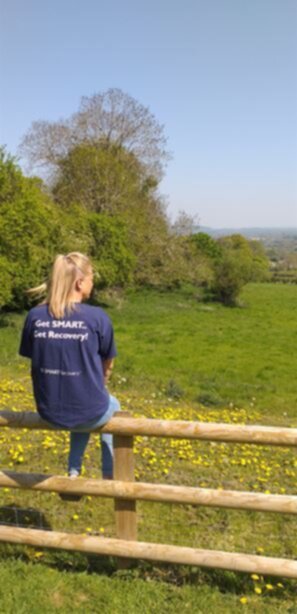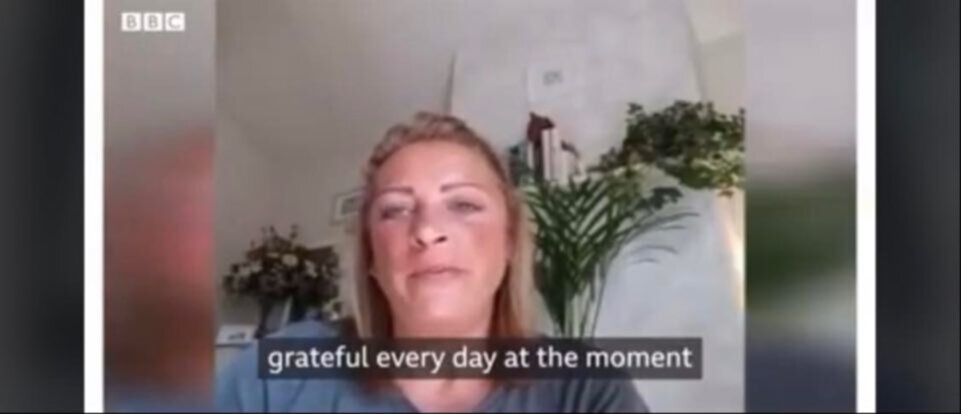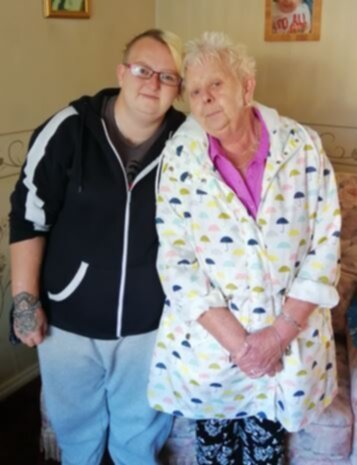

Meet Rachel
"I’ve got my families' full support, but those without loved ones could be using more drugs and alcohol to fight loneliness."
As drug and alcohol referrals to our Powys services are just 32% of this time last year, Rachel is urging those struggling to seek help, despite lockdown conditions.
Rachel is continuing her recovery in isolation, aided by online meetings and virtual support, as lockdown turns daily life on its head.
Rachel Cook, 44, has volunteered here at Kaleidoscope for two years, delivering recovery groups and supporting others to overcome the challenges she has faced. Since engaging with services four years ago she has been drug and alcohol free for a year and a half.
Luckily, Rachel is equipped with many tools for coping with upheaval, but in a time of unparalleled change she fears for those more vulnerable.
Feeling Isolated
Before entering recovery, Rachel was trapped in an abusive relationship and isolated from family, friends and the outside world. She used drugs to cope with the pain, and is now urging people in need of support to still reach out despite the current crisis.
She said: “If this outbreak took place when I was at my lowest, I’m not sure how I would have coped. I’ve got my family’s full support, but those without loved ones around them could be using more drugs and alcohol to fight loneliness. Of course over time, this can become a real problem. That’s why I worry for the people choosing to continue in the same vein, instead of reaching out at a time like this.”
Drug and Alcohol referrals to Kaleidoscope’s Powys services are 32% of the volume expected, since a number of non-clinical bases and recovery hubs were forced to close in line with government guidelines.
Keeping Our Spirits Up
Rachel continued, “Help might look a little different during lockdown, but virtual meetings and telephone calls are still a great support. I am still able to access SMART recovery meetings online, the format is the same and I’m benefitting from that routine and structure. The atmosphere is different to when we’re all in a room together, but we’re keeping our spirits up, and supporting each other to prevent relapse.”
Rachel added, “I want people to know support is still available. And perhaps for those reaching out for the very first time, taking that step by way of phone call or video chat could feel less overwhelming, less intrusive. There are a number of ways you can reach out on your own terms.”
Barry Eveleigh, Powys Service Manager at Kaleidoscope, said: “Isolation poses a unique challenge as the usual support services may be more difficult to access, but our support is available via telephone and a number of online interventions – no one should feel they have to struggle alone.
We are so glad that Rachel is still feeling supported, and that she is making great choices to preserve her mental health, such as taking a daily walk in nature and being aware of how much news she is watching. Our hope is that our digitally delivered support may feel less overwhelming, encouraging people to get in touch as greater anonymity and privacy is offered.”
Staying Safe in Scarcity
Barry added: “Worryingly, we are also beginning to see how current travel restrictions are disrupting drug markets. Reduced supply and limited access could lead vulnerable people to substitute their drug of choice, change their patterns of use, or even be forced into withdrawal. Paradoxically, overdoses go up as supply goes down and the potential for harm increases during shortfalls.
People use drugs they are less familiar with based on availability, and this makes dosing less reliable. Less drugs on the streets may appear a good thing, but the picture is far more complex than that. We are closely watching the situation evolve, and are on hand to help anyone who needs it.”





